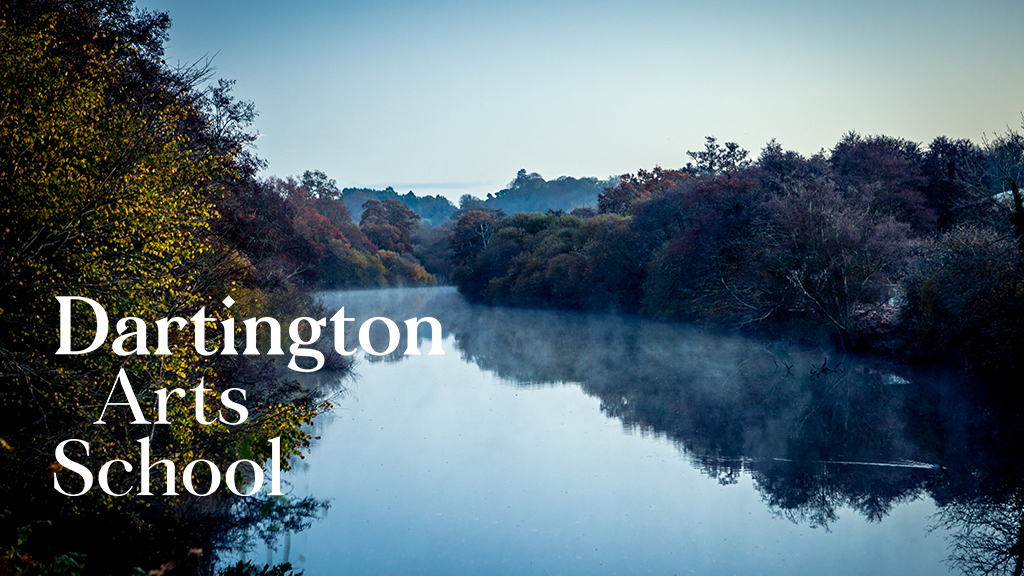Our Arts and Place MA course at Dartington Arts School is a one-of-a-kind new programme with a radical approach to learning and art practice through residency, place and the environment. As this is the first year of operation we’ve compiled some questions and answers for prospective Arts and Place students. Starting in April and with only a few places left, this is a great opportunity for you to join the first cohort. Answers by Programme Lead Dr Jo Joelson.

Residency at Vatnasafn
Stykkishólmur, Iceland 2019
Photos: Jo Joelson

What makes this course different from other MA arts courses?
Our fluid, site-responsive programme encourages creative practitioners working across the arts to become artists-in-residence, dwelling temporarily in places that are rural, urban or relatively remote and responding to those contexts through practice. Students are hosted by a network of organisations who support personal and professional growth beyond a conventional studio context.
What is the benefit of a residency-focused learning programme?
Arts residencies offer professional development opportunities and play a critical role in building experience, experimentation and competencies; as well as pathways for the exchange of skills and knowledge, inter-cultural learning and understanding.
How will the course prepare me and my practice for the residency experience?
The first module will prepare students for residency by exploring art practice based on the geography of place. Students will be introduced to a variety of residency models, from retreats, to industry embedded residencies, art-science residencies, digital residencies, anti-production and non-travel residencies. We will discuss why we might do them and the opportunities they may present. From residencies that might be themed by the host organization or self-initiated by artists, those that encourage cross cultural, cross disciplinary and collaborative working or connections to specific groups or experts; or simply a space that provides a fertile context in which to be responsive to a given location and situation over time.
Through a series of guest presentations students will be exposed to a wide range of contemporary creative practices engaging with sites and communities, providing insights, inspiration and time for Q&A’s with professional practitioners.
Assignments and group sessions will develop critical thinking – self-directed, self-disciplined, self-motivated and self-corrective thinking, all necessary skills for getting the best out of a residency opportunity.
How will the course facilitate collaboration between students?
The programme will encourage experiential modes of learning, research and experimentation with opportunities for the cohort to work collaboratively. Whilst onsite at Dartington, Arts and Place students will have their own dedicated base room which will encourage interaction. Weekly group crits will facilitate dialogue between the group. Other student-led initiatives such as an arts and place blog will facilitate co-working, sharing creative thinking and work-in-progress.
I’m keen to build relationships with fellow students but wonder how the nomadic nature of the course will affect the sense of community learning. How will you bring us together?
The first 6-week module is a great opportunity for the cohort to get to know one another whilst in residence at Dartington. The peripatetic nature of the course allows students to experience a number of short residencies alongside a small peer group that will lead to exchanges and collaborative possibilities.
Once the residency modules are completed, students come back together onsite at Dartington to prepare their Major Project, another opportunity for dialogue, interaction and collaboration amongst the group. Students are supported to develop a distinctive practice by working as part of a group with peer-to-peer learning.
To what extent will we look back at past art movements to inform and inspire our new work and is the course informed by any specific art theory/aesthetics?The programme draws upon pivotal historic and contemporary artistic debates which examine and re-examine our relationships to place, both urban and rural and to nature and to landscape such as: Land art’s complex history; Conceptualism, post-studio strategies and the ‘expanded field’, and contemporary artmaking driven by the post-medium condition. Students will develop and situate their practice within the contemporary world contributing to ongoing critical debates, revealing and responding to some of the most complex issues of our time.
How might the course help address those practices interested in addressing climate change?
Over the course of the programme we will aim to challenge and expand our ecological awareness as creative practitioners, exploring ecological and cultural perspectives in a multitude of ways. We will engage with discourse around newly coined concepts such as “post-fossil” and consider how we can address ecology other than as a theme.
What am I likely to get out of this course?
Knowledge of residency models and different approaches to artmaking in these contexts; profile-raising through exchange and development of a professional network with ongoing artistic, social and economic benefits; professional and personal development.
In the ongoing covid-situation what are the options for taking the course online?
Arts and Place is intended as a “low residency” course. We fully anticipate being able to support onsite learning as government guidance allows, though we are also preparing a flexible learning model should it become necessary and for students who for pandemic related reasons are unable to study onsite. We also expect that the mid-April start will allow students to visit residency hosts in the UK this year from the early summer onwards, and we will of course adapt accordingly as appropriate.

